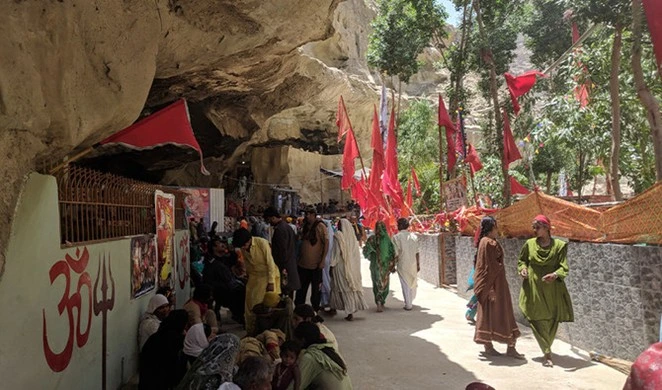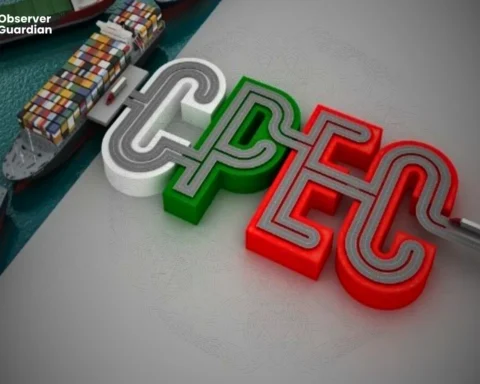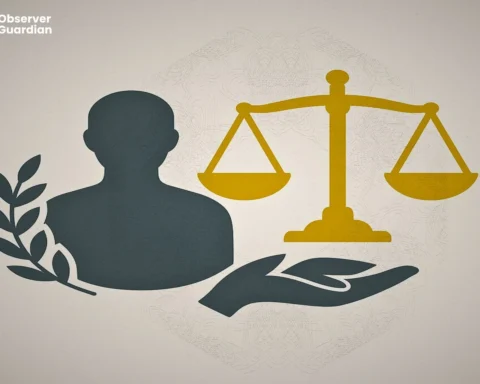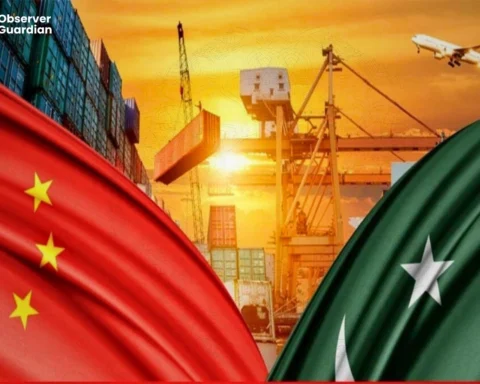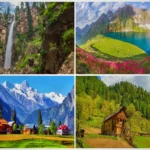In a beautiful show of religious inclusiveness, cultural pride and progressive democratic leadership, Pakistan has grabbed headlines around the world making an official decision to declare the Hinglaj Mata Temple in Balochistan to become a World Tourism Site. This ground-breaking verdict has been engineered through the efforts of the provincial government led by Chief Minister Mir Sarfraz Bugti and ably supported by a senior leader in the upper house, Senator Dinesh Kumar, and promises an important change in national discourse where both the concept of minority and its heritage are being promoted and the spirit of interreligious peace is being reignited and the splendour of the spiritual heritage of Pakistan is being extolled.
The Hinglaj Mata Temple is situated in the distant Lasbela region and it is one of the most sacred Hindu pilgrimage sites especially to the Sindhi, Balochistan and South Asian people. The temple has been built on centuries of worship, and fits into a larger sacred topography that holds the various communities in the sub-continent together with a common history and veneration. Making it the world tourist destination is not just the policy being made but rather a daring statement to show the world that Pakistan is serious when it comes to pluralism and religious liberty.
The ruling has particularly been historic because it is the first that an official recognition of such a minority religious site in Pakistan has taken place in such an international level. This development not only instils a strong sense of recognition on the Hindu community, both in Pakistan and within the rest of the diaspora, but also imparts a sense of belonging to the community. One of the most outspoken senators on minority rights, Senator Dinesh Kumar, called the declaration a landmark achievement of those who have been historically in the minority and are now becoming increasingly a part of the political and cultural fabric of the country.
Chief Minister Bugti also brought out Balochistan, as land of peace, culture, and diversity. In the next fiscal budget, his government has invested a huge amount in the rebuilding and upgrading of the Hinglaj Mata Temple and the region around it. Improved sanitation, building of rest sites, provision of better roads, and security infrastructure to suit the increase of pilgrims and tourists is being planned. These are practical advancements that are also being accompanied with a larger vision, one that involves the fusion of modern infrastructure with ancient cultural worth hence developing a paradigm of spiritual tourism that looks at the past but also looks at the future.
This move has multiple implications. Lasbela and adjoining rural areas economically would be in a position of getting more religious tourists. Having staged the temple as an international attraction, the prospects of local businesses, jobs and local development are renewed. The diaspora thru cultural tourism, particularly the South Asian diaspora, have the potential of bringing capital as well as international exposure to the area making the region a domicile of intercultural exchange.
The declaration is one way of bringing about soft diplomacy that is politically strong. Through its very active role in acknowledging and popularizing a Hindu sacred place, Pakistan is sending out a letter to the rest of the world: this is a country where different religions do not merely tolerate one another, but they embrace them. Being a region, which is usually plagued with sectarian differences, the initiative set forth by Balochistan stands out in bright light to exemplify tolerance and coexistence. It creates a precedent not only to the rest of the Pakistan but to the other countries too which have shown that peace and progress can be best established on the platform of mutual respect.
The advertisement of the temple is full of symbols. By realizing the spiritual and cultural depth of the Hindu heritage within its territories, the Pakistani state is also acknowledging the pluralistic foundations of the society, foundations that reach deep into the centuries and into the boundaries. This multilateral identity that used to languish under the thorn of political binaries is now being reclaimed and thrown at the world in the form of pride.
Pakistan is well known across the globe in terms of the religious freedom rights and the promotion of the temple of Hinglaj Mata is the opposite of the counter-narrative, the one of the hope and change, the one of real positive development. It goes on and shows that there is an accelerating trend towards minority voices to be heard and appreciated in national policy setup and that the way Pakistan is governed is getting to be more responsive to pluralistic demographics as seen in Pakistan.
The rational approach to the development of spiritual tourism is another evidence of the changing perception of cultural resources in the country. With the perception of travellers wanting to go more in details and experience-filled journeys, a place such as the Hinglaj Mata Temple becomes an interesting composition of history, spiritual ground, and natural landscape. In the case of Pakistan, this is not only a good economical move but also a culture enhancing initiative.
The decision to announce the Hinglaj Mata Temple as a World Tourism Site by Balochistan is not confined to be purely an infrastructure development, but it is the visionary gesture of Pakistan to declare its interfaith harmony, minority rights, and national unity philosophy. It makes the province, and the country, a model of tolerance, inclusion and cultural custodianship in the region. This is a historic move; a strong precedent is being created; a more harmonious and affluent society will be built when diversity is celebrated and when all the communities will feel that they are stakeholders in the national narrative. Pakistan has not only honoured a temple, through Balochistan, it has given a message to the world that it respects, cares, and upholds shared traditions.

